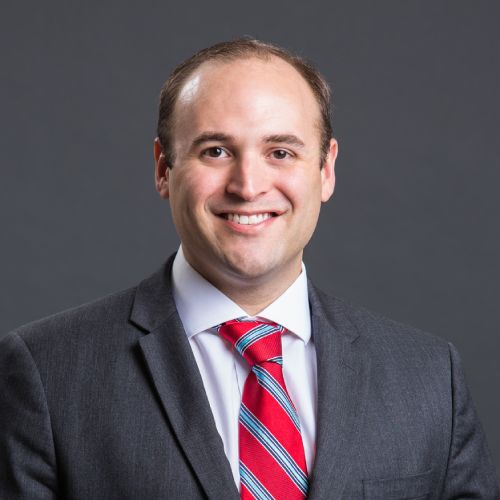Parking lots can be surprisingly hazardous places for drivers in Florida. Whether it’s a fender bender while reversing or a collision due to unclear right-of-way, parking lot collisions are common. Understanding insurance claims and determining fault in the aftermath of a legal matter can be like driving through a maze without a map. Below, we provide a thorough guide for handling the legal process after a parking lot collision in Florida to help you understand your rights, determine fault, manage insurance claims, and familiarize yourself with relevant parking lot laws in Florida.
Florida Parking Lot Accident Laws
Although there aren’t any specific Florida laws for parking lot accidents, Florida has stringent motor vehicle laws that cover accidents on public and private roadways. Florida law requires all drivers, without exception, to stop and exchange information after an accident, regardless of where it occurs and whether the accident involves property damage, personal injury, or even death.
These laws emphasize the importance of staying at the scene and cooperating with other parties and law enforcement. Failing to fulfill these duties can lead to criminal charges and serious consequences.
Determining Liability in Florida Parking Lot Accidents
Florida’s “duty of care” concept dictates that each driver is responsible for acting cautiously and avoiding causing accidents. The driver who fails to exercise reasonable care, such as by ignoring signage, not yielding, or speeding, is usually found liable. Generally, the following factors are considered:
- Right-of-Way. Vehicles in traffic lanes typically have the right-of-way, with those pulling out of parking spots yielding to through traffic.
- Signage. Adhering to stop signs and yield signs is mandatory.
- Movement. Unexpected maneuvers like sudden reversing or not checking blind spots can contribute to accidents.
- Speeding. Exceeding the posted speed limit within a parking lot can be considered negligent driving.
Florida’s comparative negligence rule applies here. This rule determines the compensation amount based on each party’s level of fault, with blame for the accident assigned according to each driver’s contribution to the incident. An experienced attorney can help determine how this rule applies to your case.
Filing Your Insurance Claim
The first step after a parking lot accident in Florida is contacting your insurance company. Here are some key points to remember:
- Be prepared. Before contacting your insurer, gather essential details, such as the other driver’s information, photos of the damage, and witness statements.
- Collect evidence. Photos and videos of the damage to all vehicles involved, the positions of the cars, and any relevant signs or markings are important to gather. If there are witnesses, get their contact details and statements.
- Police report. While parking lot accidents are typically minor, having an official report can still be beneficial.
- Honesty is key. Provide a truthful account of the accident. Exaggerations or omissions can jeopardize your claim.
- Review your coverage. Florida is a no-fault state, meaning your Personal Injury Protection (PIP) coverage will likely cover your initial medical expenses up to a specific limit. The at-fault driver’s liability insurance is utilized for property damage claims. However, for more substantial damages, fault determination becomes crucial.
You may be able to pursue compensation for damage and injuries through a civil personal injury claim in addition to making an insurance claim. A personal injury lawyer can evaluate your case and advise whether filing a lawsuit is the best course of action.
What Should I Do Immediately After a Parking Lot Accident?
Stay at the scene, check for injuries, and exchange information with the other driver. Document the accident scene with photos and gather witness information if available. Contact the police if there are any injuries or significant damage.
Do I Need to Call the Police For a Parking Lot Accident?
Florida law requires reporting the accident to the police if damages or medical expenses exceed $500. Failure to do so can result in legal penalties. It’s always best to err on the side of caution and file a report, even for minor accidents.
Can a Previous Traffic Violation Impact My Claim After a Parking Lot Accident?
The other driver’s insurance company can use a previous traffic violation on your record to argue you were negligent and contributed to the accident, potentially affecting the amount of compensation you receive. An experienced attorney knows how to deal with and counter these tactics.
Should I Contact a Lawyer After a Parking Lot Accident?
Consulting with an attorney can be beneficial, especially after an accident resulting in significant injuries or property damage. A lawyer can help navigate complexities like fault determination, maximizing your compensation, and dealing with insurance companies. They can also ensure your past driving record doesn’t unfairly impact your claim.
Injured in a Parking Lot Collision in Florida? Don’t Go It Alone
Parking lot collisions can be stressful and confusing. At James Horne Law, PA, our dedicated and experienced attorneys understand the intricacies of Florida parking lot accident laws. For over a decade, we’ve provided compassionate support, expert legal assistance, and a strong history of successfully guiding clients through challenging situations. Our firm is committed to getting you the maximum compensation you deserve.
Contact us today for a free consultation.



